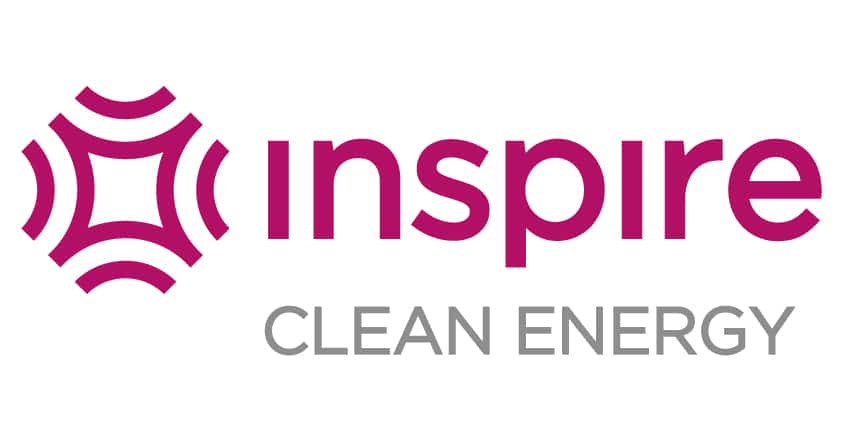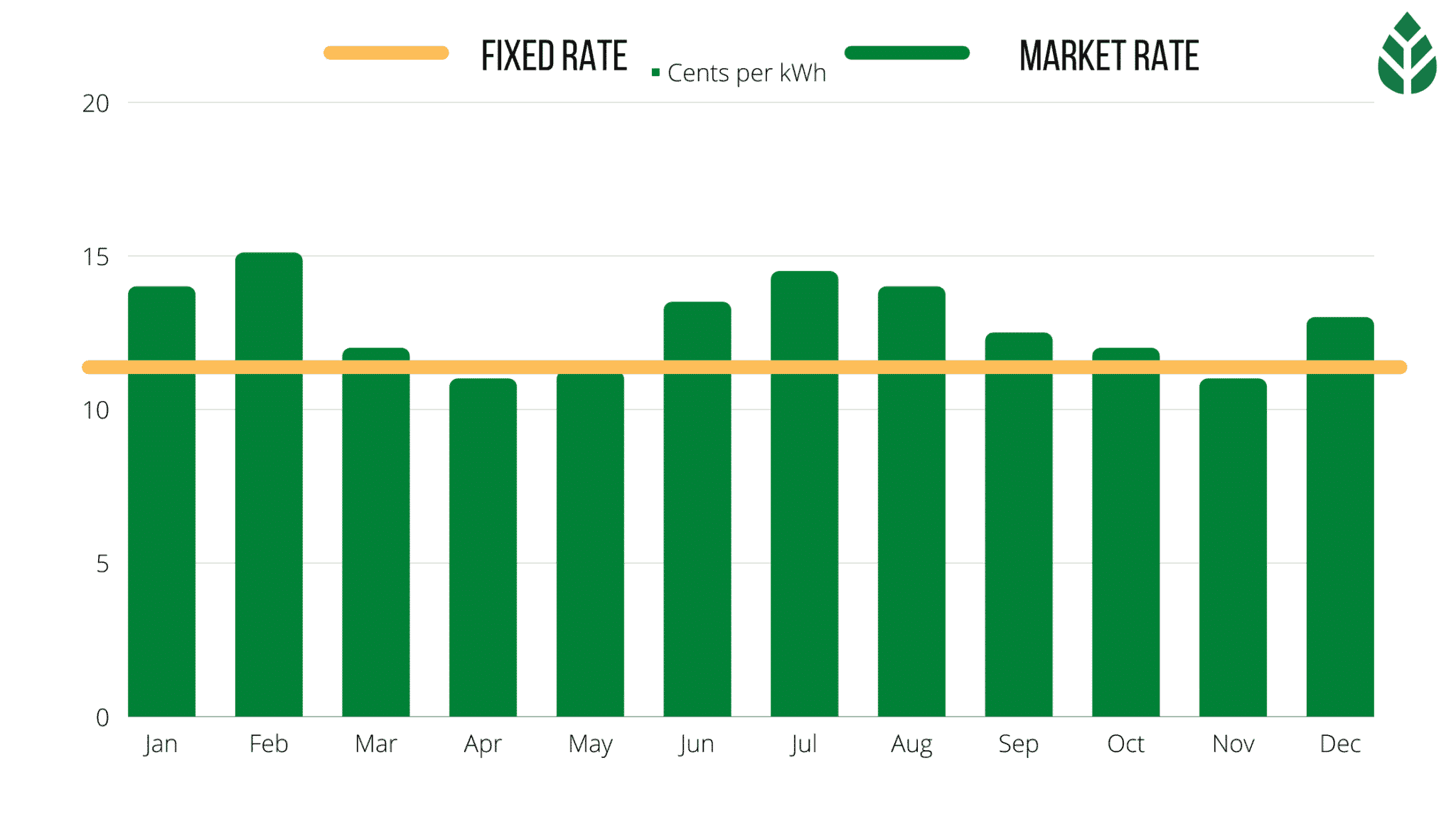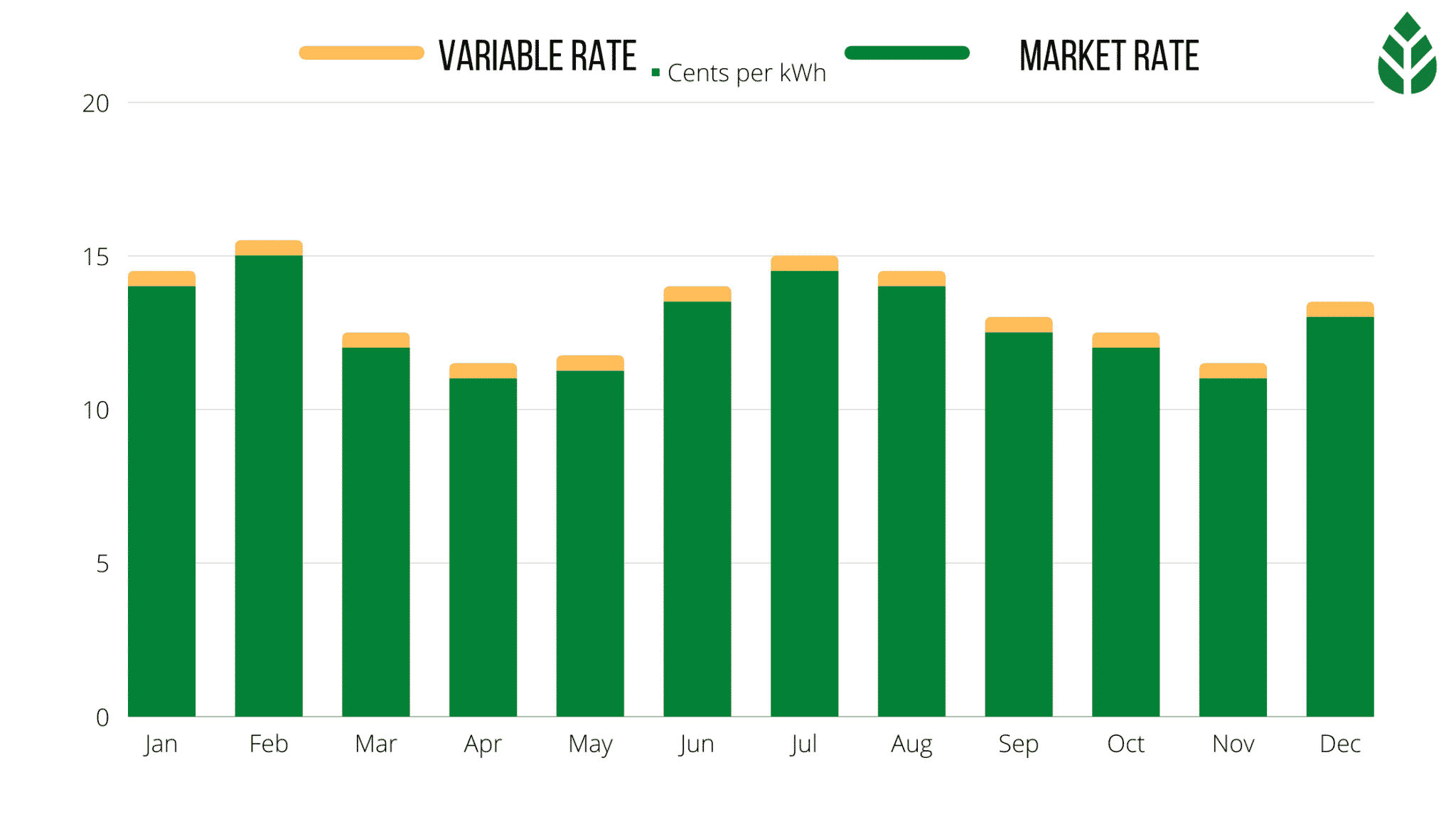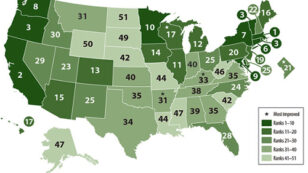 Home
Home
Massachusetts Electricity Rates and Providers (2024)
Here’s a quick overview of Massachusetts energy prices:
- Current average retail rate of electricity: 26.66 cents per kilowatt-hour (kWh)1
- Current range of electricity prices in Massachusetts: 19.99 to 28.99 (cents per kWh)
- Average monthly electric bill: $152.19
- Average energy usage: 602 kWh per month
**Information above verified as of November 2022
Each product and or company featured here has been independently selected by the writer. You can learn more about our review methodology here. If you make a purchase using the links included, we may earn commission.
Why is there deregulated energy in Massachusetts?
In the early 1990s, residents in Massachusetts were faced with increasing utility bills and what the Department of Public Utilities (DPU) believed were unfair price hikes for electric service. In 1997, the DPU passed legislation that would restructure the energy market, thereby giving customers a choice of electricity provider.
The deregulation mandated that base rates charged by energy suppliers would be regulated by the DPU. Energy distribution companies would then compete for business, driving down energy costs.
A deregulated energy market means lower prices for homeowners like you, which is always a positive thing. However, many Massachusetts residents struggle to understand and take advantage of the market as it is now. We’ll explain the deregulation and how to choose an electric company below.
Get Connected to a Power Supplier in Massachusetts
Here at EcoWatch, we’ve researched the power suppliers in Massachusetts and have determined which are the most likely to provide you with quality service, affordable rates and the option to get your energy from clean sources, like solar. You can connect with suppliers by using this tool or by clicking the links below.

IGS Energy

Regional Service
Average cost
Pros
- All plans use clean energy
- Makes charitable contributions
- Low number of customer complaints
Cons
- Charges contract cancellation fees
- No prepaid or no-deposit plans
- Low number of plans to choose from
IGS Energy ranks so highly in our book in large part due to its commitment to sustainability. It only provides clean energy to its customers, and, in Massachusetts, it maintains below average prices per kilowatt-hour (kWh) for the energy it delivers.
In addition to its green vision for the future, IGS Energy goes above and beyond in all of its business practices. It’s a member of Conscious Capitalism, was certified as a Great Place to Work in 2021, and it makes charitable donations to communities in need.
IGS Energy also provides multiple options for green energy plans — 12 months and 36 months — for customers to choose what suits them best. All plans come with a fixed rate, which is generally better for homeowners.
Facts and Figures: IGS Energy
| EcoWatch Rating |
|---|
| Better Business Bureau (BBB) Rating |
| Average Cost ($-$$$$$) |
| Solar Services |
| 4.5 |
| A+ |
| $$$ |
| 100% Renewable Energy Plans, Fixed-Rate Plans, Variable-Rate Plans, Business Energy Plans |

Inspire Clean Energy

Nationwide Service
Average cost
Pros
- All plans use clean energy
- Certified B Corp
- Great industry reputation
- No sign-up or cancellation fees
Cons
- Relatively young company
- Low number of plans to choose from
Inspire Clean Energy is another provider that is committed to renewable energy and helping homeowners reach a carbon-neutral status. The company offers solar energy, wind energy and hydroelectric energy, giving customers in virtually all areas in Massachusetts and throughout the country access to clean energy.
Behind IGS, Inspire maintains the second-lowest cost per kWh for renewable energy in Massachusetts.
Inspire provides access to three different clean energy plans in MA: one for 6 months, one for 12 months and one for 24 months. All of these options include a fixed rate for your energy, which is a great way to keep your utility bills affordable and predictable.
Facts and Figures: Inspire Clean Energy
| EcoWatch Rating |
|---|
| Better Business Bureau (BBB) Rating |
| Average Cost ($-$$$$$) |
| Solar Services |
| 4.5 |
| A+ |
| $$$$ |
| 100% Renewable Energy Plans, Fixed-Rate Plans |

Direct Energy Services

Regional Service
Average cost
Pros
- Many years of experience
- Great industry reputation
- Makes charitable contributions
- Low rates
- Low number of customer complaints
Cons
- Charges contract cancellation fees
- Low number of plans to choose from
Direct Energy has two plans for customers to take advantage of 100% renewable energy: one for 18 months and one for 24 months. Both let you lock in a lower-than-average rate for electricity in Massachusetts, which means the company is able to make clean energy more affordable than power coming from fossil fuels.
Direct Energy is another company that goes above and beyond to contribute to a positive future for all. It makes charitable donations to the Texas Children’s Hospital, and it offers the Neighbor-to-Neighbor program to help those in need afford their monthly energy bills.
Unfortunately, Direct Energy has some negative reviews online, although this is expected in the service industry. There are positive customer comments as well, so your experience is likely determined by the representative assigned to your account and the office that serves your area.
Facts and Figures: Direct Energy Services
| EcoWatch Rating |
|---|
| Better Business Bureau (BBB) Rating |
| Average Cost ($-$$$$$) |
| Solar Services |
| 4.5 |
| Not Rated |
| $$ |
| 100% Renewable Energy Plans, Fixed-Rate Plans, Variable-Rate Plans, Prepaid Plans, Business Energy Plans |
Massachusetts Energy Rates
Massachusetts is home to many different Residential Energy Providers (REPs), so you have plenty of options to choose from to reduce your electric bills. However, you might be wondering how the deregulated market in Massachusetts affects your energy prices.
A deregulated energy market like the one in Massachusetts means that the energy supply chain is split between two parties before it reaches your home: the supplier and the distributor.
Energy suppliers — the companies that actually generate the electricity — are regulated by the DPU, so rates for basic service always stay in check with what is fair. You cannot choose your supplier, and one is assigned to you instead based on your location within the state.
Current suppliers in Massachusetts include:
- Eversource (the largest supplier in the state, formerly called NStar in the eastern part of Massachusetts)
- National Grid (formerly called Mass Electric Co)
- Eversource (formerly called the Western Massachusetts Electric Company, or WMECO in the western part of Massachusetts)
- Unitil
Energy distribution companies — the companies with which consumers sign contracts for electric service — dictate where a supplier’s energy should be routed based on customer acquisition. These are the companies you can choose and the ones that compete to keep prices low to get your business.
It’s especially important in Massachusetts to choose the right supplier for your needs and budget. Electricity costs in the area have increased more rapidly than the national average, as you can see in the chart below.
| Year | U.S. Average Price for Energy (cents per kWh)1 | % Change Year Over Year | Boston, MA Average Price for Energy (cents per kWh) | % Change Year Over Year |
| 2018 | 13.9 | N/A | 21.6 | N/A |
| 2019 | 13.9 | 0% | 21.4 | -0.93% |
| 2020 | 13.7 | -1.43% | 20.9 | -2.34% |
| 2021 | 14.4 | +5.11% | 22.8 | +9.09% |
| 2022 | 16.7 | +16% | 28.8 | +26.32% |
| Total Change Since 2018 | +20.14% | +33.33% |
How Do Massachusetts Electricity Prices Compare Based On Company?
The table below provides a comparison of the energy plans available in Massachusetts. It’s important to note that, as an environmentally friendly website, we’re only including options from companies that offer 100%-renewable energy plans. We’ll discuss these green plans in depth later on and provide some information as to why they’re favorable.
| Plan Name | Term (Months) | Plan Rate (¢/kWh) |
| Alpha Gas and Electric 100% Renewable Plan | 24 | 23.00 |
| Direct Energy 100% Clean Energy Plan 18 | 18 | 24.99 |
| Direct Energy 100% Clean Energy Plan 24 | 24 | 22.79 |
| Discount Power Renewable Plan | 24 | 22.99 |
| Inspire Clean Energy 100% Renewable Energy Plan | 6 | 28.99 |
| Verde Energy USA Renewable Energy Plan | 12 | 21.99 |
| Inspire Clean Energy Renewable 12 | 12 | 24.99 |
| Inspire Clean Energy Renewable 24 | 24 | 21.99 |
| Green Mountain Energy 12-Month Clean Energy Plan | 12 | 24.10 |
| IGS Energy Clean Energy Plan 12 | 12 | 19.99 |
| IGS Energy Clean Energy Plan 36 | 36 | 21.99 |
| Smart Energy Renewable Plan | 12 | 22.90 |
| Clean Choice Energy Clean MA 12 Plan | 12 | 26.90 |
*All energy rates are accurate as of November 2022 for 02301, the largest zip in MA. Rates may have changed since the last update. For the most recent daily electricity prices in your area, please enter your zip code above to get connected with a local power provider
How Do You Find the Best Electricity Rates in Massachusetts?
Finding the best energy prices in Massachusetts requires you to consider a few factors that can change the per-kWh rate in your energy contract. The two most important of these factors are how much electricity your household uses each month and how long you’re willing to lock into a contract.
While it’s easy to browse the table above and find the lowest per-kWh rate, that’s unfortunately not always going to bring you the best overall energy rates in Massachusetts. Below, we’ll include two of the most significant things you need to consider if you want to get the best long-term price for electricity in Massachusetts.
Your Energy Usage
Many homeowners neglect to consider how average energy consumption plays into their initial and ongoing energy rates. The rates in the chart above all assume you use the average amount of energy for Massachusetts, which is around 602 kWh per month.
Many REPs use tiered rates, which balance out the cost per kWh among households that use wildly different volumes of electricity. These rate plans usually charge low-consumption customers more than high-consumption customers. Therefore, your per-kWh rate could be higher than estimated if you use less than 602 kWh per month.
The time that you consume most of your electricity can also come into play for REPs that use time-of-use (TOU) plans. These plans charge more for energy during peak hours when demand is high. Your rate can fluctuate based on when you consume energy with a TOU plan.
Your Contract Length
Next, you’ll have to consider the length of the contract you’re willing to enter into. Longer contracts typically come with lower per-kWh rates because local utility companies want to guarantee your business for longer. However, longer contracts also mean you’ll be locked into a specific rate for longer, which can be detrimental.
Your Contract Terms
Finally, the terms in your contract can dictate what you pay for energy and when. Some REPs offer introductory rates for new homeowners or new customers. These rates will eventually expire and will typically increase after that. Make sure you understand if and when your rate will change with these plans.
You should also look at cancellation fees if your contract has any. Some companies advertise low cancellation fees but then charge that fee for every month your contract should have persisted had you not canceled.
Still not sure which company is right for you? You can use this tool to find a provider instantly based on our research and recommendations.
What Types of Electricity Plans Are Offered in Massachusetts?
There are several types of energy plans that you’ll come across in Massachusetts, and although some of them seem self-explanatory, there are details you should be aware of before committing. We’ll explain the most common energy plan types in Massachusetts below.
Massachusetts Fixed-Rate Plans
Fixed-rate plans include a single, fixed rate for energy that never changes over the contract term. That means you’ll get a per-kWh price on day one, and you’ll pay that price until the contract term has ended, even if local energy prices skyrocket. We almost always recommend fixed-rate plans because they provide peace of mind that you’ll never pay inflated prices for energy.
However, fixed-rate plans also typically require a contract and come with early-termination fees, so they aren’t ideal if you don’t want to be locked into a specific supplier or you want to be able to shop for better rates in the near future.
Fixed-Rate Plans Pros and Cons
| Pros of a Fixed-Rate Energy Plan | Cons of a Fixed-Rate Energy Plan |
| You’ll always know what your energy rate will be, making budgeting a breeze | They typically include early-cancellation fees and require contracts |
| You stand to save money and retain peace of mind if energy rates skyrocket | You might end up paying more than a variable-rate option if local prices drop |
Variable-Rate Plans in Massachusetts
A variable-rate plan charges you different rates for your energy based on market fluctuations. These plans can sometimes lead to savings if the market price drops, but they can also lead to higher monthly payments if the rates spike for any reason.
If you’re familiar with the outages in Texas in 2021 due to unexpected snowstorms, you already know why variable-rate plans can be detrimental. In times of high demand or low supply, rates can spike and lead to massive monthly bills. This is the primary reason why we recommend most residents get a fixed-rate option.
Variable-Rate Plans Pros and Cons
| Pros of a Variable-Rate Energy Plan | Cons of a Variable-Rate Energy Plan |
| You might save money over a fixed-rate plan if local prices drop after signing up | Your energy rate could change at any time without warning |
| No contracts required, which means no early-termination fees | You might end up paying far more than with a fixed-rate plan if prices skyrocket |
No-Deposit and Prepaid Energy Plans in Massachusetts
Some electric utility companies in Massachusetts require a non-refundable deposit for all new customers. This helps offset losses from electric customers who eventually fall into non-payment.
If you have decent credit, your provider may view you as less of a risk for missed payments and agree to waive the deposit. This is a great way to save some money upfront.
Prepaid plans also typically have no deposit requirement. However, you will need to part with money upfront to fund your account in advance. Your electric company will then pull from that account to pay your bill each month. This is a great option for some customers looking to set strict budgets for energy, but it can lead to outages if you forget to add money each month.
Prepaid Energy Plans Pros and Cons
| Pros of a Prepaid Energy Plan | Cons of a Prepaid Energy Plan |
| Minimal charges upfront | You could lose power if you forget to add money to your account |
| You retain total control over maximum energy charges | Many prepaid plans have slightly higher charges per kWh |
| No contracts or termination fees |
Green Energy Plans in Massachusetts
The last residential option for electricity is a green energy plan. Green plans are the ones we’ve highlighted in the table above. These plans guarantee that all of the energy your home uses will come from renewable energy sources. These can include solar, wind, hydroelectric power and biomass, although the large majority of Massachusetts’ clean energy is from solar.
Green energy plans are great for the environment and allow you to minimize your carbon footprint by reducing your reliance on fossil fuels like natural gas and oil. The per-kWh rate tends to be a bit pricier, but we believe the investment is well worth it.
Keep in mind as you browse green energy plans that all electric utility providers in Massachusetts are required to generate a minimum of 51% of all electricity from renewable sources. This helps the state meet its Renewable Portfolio Standard (RPS) goals. Still, plans that guarantee 100% are superior.
Green Energy Plans Pros and Cons
| Pros of a Green Energy Plan | Cons of a Green Energy Plan |
| Lets you promote green energy without having to install costly equipment | Many are a bit more costly per kWh than non-renewable energy plans |
| Reduces your carbon footprint and contribution to global warming | Not as many plans available as those that use natural gas and oil |
Business Energy Plans
Business energy plans are designed for commercial customers, who typically have greater energy needs than residential customers. The per-kWh charge is often lower than it would be for a home energy plan for the same consumption rate. These plans aren’t as widely available, so you will likely have fewer options as far as suppliers and contract options go.
What Should You Look For When Choosing an Electricity Provider in Massachusetts?
Your personal needs when it comes to an energy company in Massachusetts will depend on whether you’re a new homeowner or Massachusetts resident or if you already live in the area and simply want to switch to a new provider. We’ll break down some of the most crucial things to look for based on your situation in the sections below.
Picking Energy Providers as a New Massachusetts Resident
If you’re moving to Massachusetts or have recently moved and need to set up a new electric service, the most important factor to look for in a provider is the introductory rate and changes to that rate.
Your per-kWh rate will always be important, but this is especially true if you’re a new homeowner or customer. Many of the plans listed in the chart above are only offered to new residents. These include the plans from:
- Direct Energy
- Inspire
- Verde Energy USA
- Discount Power
- Smart Energy
- Clean Choice
If you do pick a plan from one of these providers, make sure you check how high your rate will go after the introductory period ends. While the initial rate might seem appealing, the bump in price after that might end up costing you more in the long run.
We also strongly recommend looking into the company history and reading some customer reviews for companies you’re considering. Since you’re new to the area, you won’t have any sense of homeowners’ opinions of each company. Choosing a long-standing company with many positive reviews is a good way to choose a reputable and reliable provider.
Finally, we suggest looking to see where the energy you’ll be buying is coming from. Many companies in Massachusetts offer low introductory rates for 100% renewable energy. This helps you save some money and contribute to the clean energy movement.
Selecting an Energy Company If You Are Switching Providers in Massachusetts
If you already live in Massachusetts and are looking to switch to a new electricity company, your priorities will likely be a bit different. You don’t have to worry much about new homeowner rates, and you’ll likely have a better sense of the reputation of local energy companies.
What you should focus on instead are the type of plan offered, where the energy is coming from and the energy rates themselves.
While we recommend choosing a fixed-rate plan, you should figure out if a variable rate would work better for you. If you have a high tolerance for risk and want the potential to save some money, then you may want to shop around for a variable-rate option.
Just like with new Massachusetts homeowners, we suggest you consider where the energy you’re buying is coming from. While green energy plans can be a bit more costly on average, many believe the positive impact you’ll be having on the environment by choosing one is well worth the investment. This also helps keep your home state clean and healthy.
Finally, you should pay careful attention to your electricity rate. Some REPs in Massachusetts do offer introductory rates to new customers, even if they aren’t new residents. If you’re signing up with a company you’ve never worked with before, make sure you understand your initial rate and any changes to the rate over the contract term.
What are 100% Green Energy Plans?
100% green energy plans are electricity contracts that guarantee that all of the energy your home pulls from the electric grid is offset by clean energy sources. These sources include solar, wind, hydroelectric and biomass. Solar power accounts for the majority of the renewable energy in MA, followed by biomass and then wind.2
Massachusetts mandates that a minimum of 51% of each utility provider’s energy comes from renewable sources, so 100% green plans mean that the provider is adding a voluntary 49% to that breakdown.
Who Offers Green Energy Plans?
Thankfully, many different electricity distribution companies in Massachusetts provide 100% green energy plans. These include:
- Alpha Gas & Electric
- Direct Energy
- Inspire Clean Energy
- Verde Energy USA
- Green Mountain Energy
- IGS Energy
- Discount Power
- Smart Energy
- Clean Choice Energy
Other providers offer plans with lower percentages of renewable energy, usually hovering around the required 51% mark in the state. These providers include:
- Major Energy
- Town Square Energy
- Constellation Energy
- Clearview Energy
- Provider Power
What Are The Best Electricity Companies and Providers in Massachusetts?
During our research on the above power providers in your area, we looked at a variety of factors to determine what each company brought to the table in terms of pricing, service, renewable energy offerings and more.
Since choosing a provider is often challenging in deregulated markets due to the number of options, we thought it would be helpful to rank some of the top electric companies in the area. We’ll provide a brief list of some of our top recommendations below.
Discount Power — Best Overall
- 100% renewable energy plans available
- Fixed-rate contracts are standard
- Multiple contract terms offered
- Generally positive customer experience
Verde Energy USA — Best Customer Service
- Fixed-rate plans available
- Green energy plans offered
- Mostly positive customer reviews
Direct Energy — Best for Plan Options
- Multiple contract terms offered
- Fixed-rate plans offered
- Offers several 100% renewable energy plans
IGS Energy — Most Competitive Rates
- Super competitive rates, even for non-green plans
- Multiple contract terms provided
- Fixed-rate plans offered
- Generally positive reviews online
The table below includes a quick look at the green energy plans offered by these top electricity providers in Massachusetts.
| Plan Name | Contract Length (months) | Avg Rate (cents per kWh) |
| Discount Power Renewable Plan | 24 | 22.99 |
| Verde Energy USA Renewable Energy Plan | 12 | 21.99 |
| Direct Energy 100% Clean Energy Plan 18 | 18 | 24.99 |
| Direct Energy 100% Clean Energy Plan 24 | 24 | 22.79 |
| IGS Energy Clean Energy Plan 12 | 12 | 19.99 |
| IGS Energy Clean Energy Plan 36 | 36 | 21.99 |
Additional Popular Energy Companies in Massachusetts
As mentioned above, we’ve chosen to highlight the companies that provide 100% renewable energy plans, as these providers align most readily with our environmentally-friendly values. However, there are many other companies available to choose from in the area.
The chart below includes a brief look at some companies in Massachusetts that fall short of the 100% clean energy options but still provide the state-mandated 51% renewable option.
| Provider | Lowest Available Rate (¢/kWh)* | Plan Length (months) | Percent of Green Energy* | Pros | Cons |
| Major Energy Electric Services | 21.49 | 12 | 51% | Offers partial green plan at affordable rates | Only one plan available with a full-year contract |
| Town Square Energy | 21.47 | 24 | 51% | Offers partial green plan with a fixed-rate | Cancellation fees for early termination |
| Constellation | 17.99 | 36 | 51% | Super competitive rates | Only available with 36-mo contract |
| Clearview Energy | 20.99 | 12 | 51% | Only one plan option with a full-year contract | Must pay additional $9.99 per month; high cancellation fee |
| Provider Power | 20.49 | 24 | 51% | Offers partial green plan with a fixed rate | High cancellation fee |
EcoWatch Methodology on Energy Providers in Massachusetts:
At Ecowatch we take a sustainable approach to our best lists. We selected the best energy providers in MA by examining a variety of different components of the energy providers business. We considered their renewable options or green plans as the most weighted component of our scoring. We looked at how many different types of plans were available, how many years of experience the companies had, what terms and contracts looked like at each company. Lastly, we took a look at the providers track record when it came to delivering the service and customer service. We examined BBB ratings, looked into B Corp certifications, and found out if they offered competitive and fair pricing. All of these factors helped us decide which companies to recommend and which superlative to award!
FAQ: Massachusetts Electricity Plans
Since the deregulated energy market in Massachusetts can be confusing to navigate, we understandably get a lot of questions about energy plans and electric suppliers in the area. We’ll answer some of the most common questions we see in the sections below.
Among the energy suppliers in Massachusetts that offer 100%-renewable energy plans, IGS Energy has the lowest electric supply rate available. The average price per kWh in MA is 26.66 cents, but one of IGS’s fixed-rate green energy plans comes with a rate of just 19.99 cents per kWh.
There is no single energy provider that will appeal equally to all Massachusetts homeowners. For example, one supplier might only offer variable-rate plans, which will never be ideal for a customer searching for a fixed-rate contract. However, Discount Power ranks among the top providers in our rankings of Massachusetts energy providers. This company maintains positive customer reviews, has fixed-rate plans and green energy plans available and has an A+ rating with the Better Business Bureau.
The average homeowner in Massachusetts pays $152.19 per month for electricity. According to the most recent data sources for these figures, the average monthly consumption throughout the state is 602 kWh, and the typical per-kWh charge is 26.66 cents per kWh.
One of the easiest and quickest ways to lower your utility bill in Massachusetts is to switch to a new energy supplier that has a lower per-kWh rate. Thanks to energy deregulation in MA, you can select the company that suits your needs and budget, which means you can instantly reduce your energy expenditure by switching suppliers.
Additionally, you can improve the energy efficiency of your home to reduce your electric bill. Some energy-saving things you can do include updating insulation, doors and windows to maximize efficiency, installing a smart thermostat to regulate heating and cooling more efficiently and changing your light bulbs to more efficient options.
Just like with suppliers, there is no single energy plan that will be best for all Massachusetts homeowners. You will need to find the best option for you in terms of contract length, plan type, electricity costs, contract details and more. If you’re having difficulty deciding which plan is right for you, you can use this tool to get started.

 233k
233k  41k
41k  Subscribe
Subscribe 










